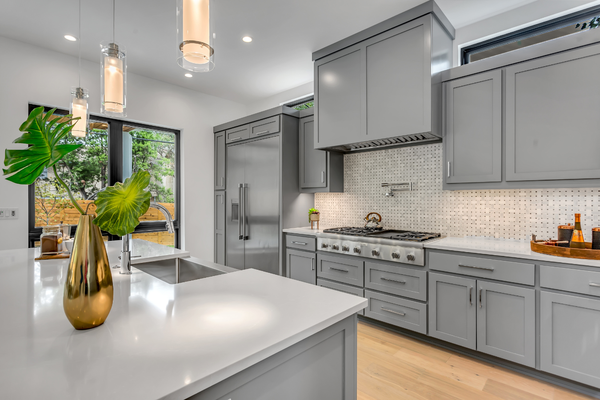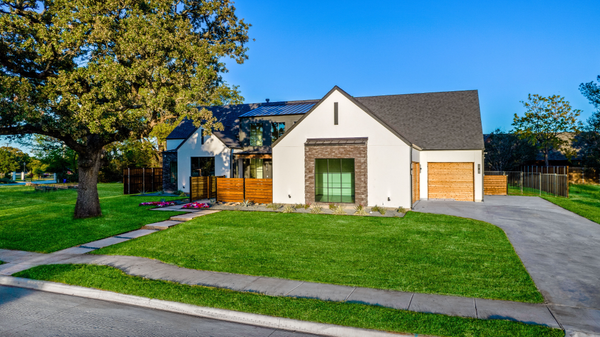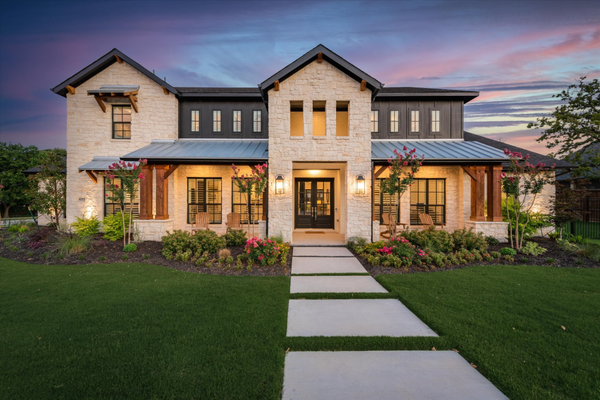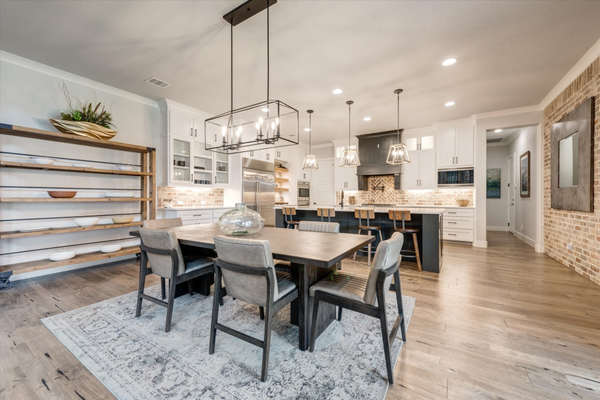
What Factors Can Increase My House Value
If you’re planning on selling your house, you will likely want to make sure that you are getting the best value for your property. However, if you’re not familiar with the real estate market, you might get confused about how the value of a property is determined. So, if you're wondering ‘What factors can increase my house value?’, you’re in the right place. Read on to find out exactly what factors affect the value of a property and how you can improve your chances of getting a better price for your house. What Factors Can Increase My House Value According to Bloomberg, the discrepancy in demand and supply has resulted in a significant increase in the value of properties across the country in the past year or so. While demand and supply play a huge role in determining the value of any commodity, the market value of a property can be affected by a lot of other factors. These include: 1. Location You’ve probably heard that the location of a house plays a huge role in determining its value. As a layman, this may confuse you a bit. ‘If the house is nice, why does it matter where it is located?’ However, things are a bit more complex than that. If you find a house in New York City and then come across the exact same house in Princeton, chances are that the price tags would be significantly different. In reality, it isn’t the value of the house that appreciates over time; it is the value of the location. If the property is in a thriving location with a high quality of life, it will automatically lead to better value. Homes in urban locations with easy access to employers, supermarkets, shopping malls, parks, restaurants, pubs, and other recreational activities, tend to have a higher value as compared to houses in more closed-off areas. Therefore, when investing in a property, it is important to take the location into account. 2. Demand and Supply Another major factor that affects the housing market is demand and supply. In the past year, a noticeable decrease has been recorded in the supply of houses, which has created a shortage of inventory. As a result, the value of the houses that are available has gone up. In addition to that, there is also a lack of building supplies and materials as well as labor that is required to build houses and apartments. Most buyers now have to participate in bidding wars if they want to buy a house, which generally leads to the house being sold at a higher value than the original asking price. 3. Value of Comparable Properties Suppose, you like a dress for $200 at a store. Then you visit another store and find a very similar dress with the same quality, but it is only $50. Which one would you buy? The same theory applies to houses. If most houses in the area are sold at a certain price, you will find it extremely difficult to get a higher price for your home. However, in today’s real estate market, this can be an asset; especially if you live in a thriving locality. Since the demand is higher than the supply, the values of most properties are increasing at a historic rate. Victoria Lance, a real estate agent, describes this as a domino effect. She explains that she sold a house for $368,000 and then the same floor plan was sold for $385,000. Soon afterward, she had a client list a similar house at $400,000. You can look up the prices of houses in your area if you want to get a rough idea about the price you can get for your house. 4. Usable Space A large usable space can also increase the value of a house. However, keep in mind that the usable space of your house does not include attics and basements. Instead, usable space is generally defined as living spaces, which include living rooms, bedrooms, kitchens, etc. That being said, a finished basement or attic can also prove to be an asset when trying to sell a house. Ever since the pandemic has caused more people to permanently switch to working from home, a lot of people are looking for housing with extra spaces to create a dedicated workspace. 5. Upgrades This is something that you can control if you want to get a better price for your house. Remodeling your house in a strategic manner can significantly boost the value and marketability of your house once it is listed. Recently upgraded houses have better features, which attract more buyers. Additionally, it saves the buyers the hassle of upgrading the house themselves. Some things you can do to improve the value of your home include lush landscaping, adding a deck, minor kitchen remodeling, paint updates, minor fixtures, and new appliances and systems, such as a new garage door, energy efficient windows, HVAC unit, etc. 6. Age and Condition It is also important to note that newer homes typically sell at better prices. This is because despite appreciating in value, older homes depreciate physically. Therefore, there is a higher chance that older houses would require more maintenance and renovations. As a result, more buyers prefer newer homes, as they tend to have more modern plumbing, electrical appliances, and even basic structures. Newer houses may also have longer warranties on various systems and appliances, which further increase their value. Conclusion While selling your house, it is important to make smart decisions to save yourself from a potentially expensive mistake. And the only way you can do that is by educating yourself about the real estate market in your locality. Therefore, it is important to research as much as you can to avoid these common house-selling mistakes. If you’re looking for a good retail agent for consultation, head over to The Wall Team to schedule an appointment today.

What You Should Avoid When Buying a House
What You Should Avoid When Buying a House: 8 Common Mistakes for First-Time Buyers Buying real estate may seem exciting and fun but can be highly stressful for a first-timer. For many people buying real estate for the first time, they are making the first biggest investment of their life. This can cause a fair bit of anxiety and make some homeowners ponder upon what they should avoid when buying a house. Without investing your time and money properly, you can end up making mistakes that will cost you thousands of dollars worth in damages. To ensure you are spending smartly on your new house and don’t end up emptying your savings account, here are a few common mistakes you should avoid as you make your first home purchase or consider investing smartly for your second or third house. What Should You Avoid When Buying a House? Mistake #1: Not Checking on the Home Inspector Properly Buying a house can make you extremely stressed and nervous. Most people tell stories about having knots in their stomachs and questioning themselves if they were making the right decision through the purchasing process. Since the process is extremely lengthy and time-consuming, many don’t pay attention to who their home inspector for the new house is. The home inspector is responsible for checking the amenities of the house and inspecting any damages to the property. Looking for an unbiased and observant home inspector is highly recommended as they can help you get a better bargain or show you if the house you have chosen is not right for you. When you negotiate the price down for the house due to pending repair work, you can easily find a financial solution to pay for much-needed renovations and repairs. Mistake #2: Assuming Your Credit Is Fine or Assuming You Won’t Qualify for a Mortgage Most people assume that they would not be able to qualify for a mortgage for their house. However, most people don’t consider how lending companies and banks prefer people who keep their debt-money low and pay their bills timely. Although it is good to get into buying a house with some savings, you do not need to save up tens of thousands of dollars for your house’s down payment. On the other hand, some people overestimate their credit score and believe that it would be able to get them a good deal on the house. However, that is not true. People with higher credit scores receive the best mortgage rates. Hence, to ensure you save on long-term interest payments, you need to stay on top of your credit score. You can check your credit score for free on annualcreditreport.com every week. Mistake #3: Underestimating the Costs That Come with Home Ownership When you become the owner of your own house, it is up to you to make all repairs and renovations yourself. These expenses need to be budgeted beforehand. You will also need to set some income aside for property taxes, homeowners insurance premiums, and your monthly loan payment. If your down payment was significantly less (less than 20%), you would also have to pay for private mortgage insurance. On top of that, you will have to fulfill the utility bills, homeowners association fee, and small maintenance expenses around the house. Mistake #4: Not Reading the Fine Print on Your Contract When the closing day comes, many people become overwhelmed with the paperwork and want to sign away everything quickly. However, the anxiety of signing away your life away should not make you forget to read the fine print of your contractual agreements. Although some closing professionals may seem dissatisfied or antsy as you read through the contracts, understand that noticing the minute details can help you save thousands of dollars and protect yourself. Even though you might not be able to catch everything in the document, you should be thorough to the best of your abilities and read them carefully. Mistake #5: Expecting the Home Warranty to Cover It All When you buy an older house, some professionals add in a Home-Warranty service for a specific period for free. Although it may make you feel more confident about your purchase after investing most of your savings for the house, it is not the most useful thing. Home warranties can be helpful, to an extent, but you cannot expect these warranties to work all the time. For more expensive repairs, you will have to invest the money yourself or strike a deal with the owners of the house. Mistake #6: Assuming That a Big Down Payment Is Needed The house’s down payment is a huge hurdle that keeps many people from investing in real estate. However, contrary to popular belief, you can remove this hurdle as a first-time homeowner by using down payment assistance and a zero-down mortgage. A USDA loan and VA loan can help you with a zero-down payment. Mistake #7: Not Having Enough Savings Although you qualify for a mortgage from the bank and with a lower amount of down payment, you will also need some money in your savings account for the bank to qualify. Some lenders will want to see a substantial amount of funds in your account. This amount of funds is called cash reserves and can be used any way you like after the loan closes. Mistake #8: Making Emotional Decisions The home buying process can be very stressful, and you will encounter many unexpected situations along the way. You may be outbid for your dream house by other buyers and investors, and your budget would need readjusting along the way. However, you must understand that it is all part of the process, and you need to keep a cool head. If you discover you need to save more money to be able to afford a house, you can feel dejected, but you should take your time in the process. Wrapping Up! Purchasing a house the first time can be daunting. If you want to ensure that you get the best deal for your house, you need to invest in the services of a reliable real estate agency. The Wall Team can help you buy and sell your dream home at the most affordable prices.

7 Things to Keep in Mind when Buying a Home in Texas from Out of State
Texas is one of the fastest-growing and most populated states. Hundreds of thousands of individuals relocate annually to Texas as it offers a fantastic combination of highly affordable living and excellent employment opportunities. If you're currently living in another state and wish to relocate to Texas, continue reading this article to find helpful tips on buying a home in Texas from out of state. Buying a Home in Texas from Out of State Purchasing a home in Texas from out of state is completely possible. However, in order to do so, you will have to follow the tips mentioned below. Keep in mind that the process will look a bit different for every potential home buyer depending on your situation. Nevertheless, these guidelines will serve you well in your quest to buy a multifamily residence, single-family house, condo, apartment, or other properties. 1. Make a Plan The first thing you should do when purchasing a home out of state is to make a strategic and financial plan that best suits your needs. Similarly, you should also consider what you need to do about your existing home. Do you wish to sell it? Rent it out? Additionally, you should consider how much money you can afford to pay, how high a monthly mortgage payment you can comfortably make, and how your income might rise or sink (and impact these calculations) in the future. 2. Get in Touch with Relocation Experts A relocation professional's job is to make the moving process as convenient as possible. Their services might include helping with the logistics of the move, encompassing finding the shipping service, storage facility, and moving company for you; coordinating travel for you and your family members; enrolling your children in school and even supervising contract work that is being done to your new house. If you are not interested in paying for the services they provide, you can usually ask for relocation materials without paying any additional cost. Even though the details might not be as customized, it will still offer some insight and answer any relocation queries you might have as long as you start to narrow down your search. 3. Work with a Local Realtor One of the most crucial steps when searching for a home in another state is to work with a local realtor or real estate company in Texas. After all, besides the people who grew up there, few individuals will be familiar with the area, its features, and upcoming local trends quite as well as a real estate professional who is on-site and knowledgeable about the locale. To start off, try to get some referrals from friends and family members, check with local listing platforms, and go through online reviews to get an idea of who has got a solid footprint in the area. Keep in mind that you will want to speak to a few professionals to determine who best matches your needs, working approach, and personality. 4. Take a Virtual Tour of Every Home When you cannot go to every showing in person, ask your real estate agent to offer a virtual tour of each home that meets your requirements. A real-time tour is a general walkthrough of a home; it lets you view the landscaping, rooms, and the property's exterior as if you were walking through yourself. After you have filtered your options, request your agent for an online tour of the neighborhood and nearby amenities as well. 5. Find a Mortgage Lender Finding the right mortgage lender is as critical as finding the right real estate agent. One thing to keep in mind is that most lenders will generally want you to reside in Texas for at least two years before financing a house. If this is the case with your mortgage lender, they can discuss with you how to meet this condition. For instance, you could rent a home before buying it. You need to make sure that your mortgage lender offers you multiple options that will meet your family's long and short-term goals. Bear in mind that loan limits, mortgage interest rates, and loan programs can differ by state. Thus, ask your mortgage lender if there are any procedures or requirements you're not aware of to avoid surprises. Besides that, your mortgage lender needs to be well-educated in their local area, have a high rating on customer service, and, similar to your real estate agent, have experience in relocating customers. 6. Visit Texas before Making an Offer Before you make an offer on a home, fly out to Texas and see it in person if at all possible. Even with a virtual tour and an excellent agent, you still have to walk across a house's floor, breathe in its air, and feel its woodwork to capture the true essence of the home. You are getting ready to invest a lot of money. Therefore, it's important that you take a quick trip to ensure the home is what you expect. 7. Familiarize Yourself with Texas Real Estate Laws You might have dreams of what you will do with your new property. However, your new state might have other plans. Every state has its own quirks when it comes to real estate law. Therefore, you should be familiar with them before buying a new house. Conduct some research to familiarize yourself with things such as building codes, property lines, zoning laws, and even fencing in your preferred area. This way, you can make sure there are no surprises when you wish to make improvements or changes to your new property. Wrapping Up Buying a home in Texas from out of state might require a couple of extra steps. After all, you need to locate a house from afar and plan out all the logistics pertaining to your move. Even though technology is useful, nothing ever beats the efforts and input from family, friends, relocation experts, and professional real estate agents. Ready to start your home search? Start your home buying process with The Wall Team.
Categories
Recent Posts









